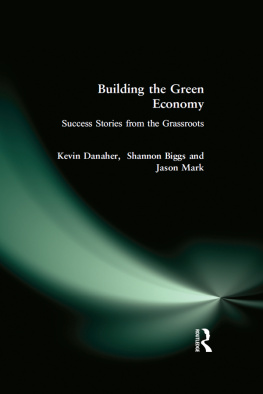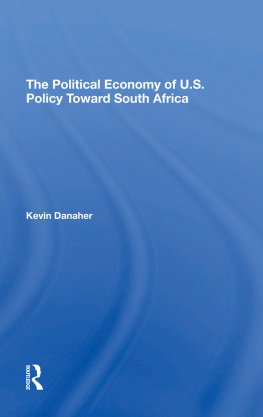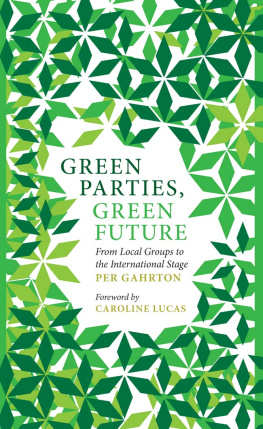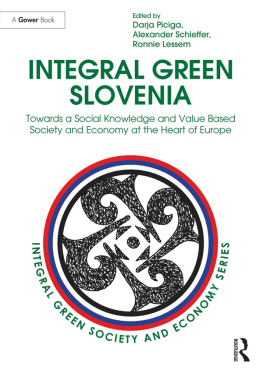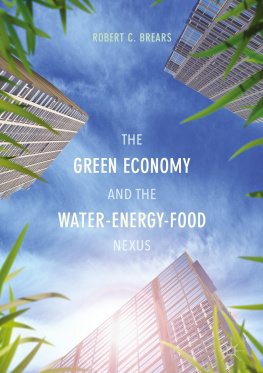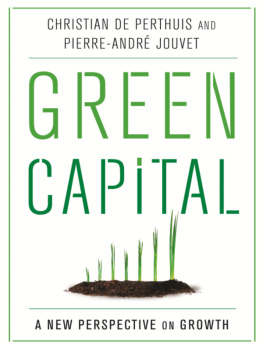Praise for Building the Green Economy
This is a practical book about on-the-ground successful green businesses and neighborhood initiatives that live sustainability, not just talk it. There are also pages of Crisp interviews with practitioners and thinkers including Rocky Anderson, Mayor of Salt Lake City and Lois Gibbs, the extraordinary organizer against toxics regarding this emerging sub-economy that challenges greed, concentrated power and destruction.
Ralph Nader
Like politics, all sustainability is local. A sustaining world can only be measured as the sum of trillions of answers executed at the grassroots level. This book inspires us to look closely for the issues that face us all everywhere.
William McDonough, co-author of Cradle to Cradle: Remaking the Way We Make Things
Building the Green Economy tells the real stories of what is both possible and necessary to restore power (metaphorically and literally) to the people, to save the nation, and save our world. It should be on every Americans A reading list.
Thom Hartmann, Air America radio host and author of Cracking the Code: The Art and Science of Political Persuasion
Building the Green Economy: Success Stories from the Grassroots, by Kevin Danaher, Shannon Biggs and Jason Mark will help you see us, humanity, again. It is a manual for those of us who need to remember we are a can-do people, full of intelligence, heart, courage, and, sometimes, wit. A staff of a book, to lean on in these hard times.Alice Walker, author of The Color Purple
Building the
Green
Economy
Success Stories from the
Grassroots
Kevin Danaher, Shannon Biggs, Jason Mark

Building the Green Economy:
Success Stories from the Grassroots
First published 2007 by Paradigm Publishers
Published 2016 by Routledge
2 Park Square, Milton Park, Abingdon, Oxon OX14 4RN
711 Third Avenue, New York, NY 10017, USA
Routledge is an imprint of the Taylor & Francis Group, an informa business
2007 by Global Exchange
All rights reserved. No part of this book may be reprinted or reproduced or utilised in any form or by any electronic, mechanical, or other means, now known or hereafter invented, including photocopying and recording, or in any information storage or retrieval system, without permission in writing from the publishers.
Notice:
Product or corporate names may be trademarks or registered trademarks, and are used only for identification and explanation without intent to infringe.
ISBN 13: 978-0-9778253-6-3 (pbk)
Our Gratitude
For my Mom, Eleanore, and the memory of my Dad, Albert. For Shane who put up with me.
Shannon Biggs
For Nell.
Jason Mark
With deepest love and thanks to Medea, Arlen, and Maya. They know why.
Kevin Danaher
CONTENTS
Section One
Toxic Avengers
Section Two
Food and Water
Section Three
From Mean Streets to Green Streets
Section Four
Power to the People
Section Five
The Freedom of Everyone to Be Enterprising
L aDonna Redmond didnt think of herself as an activist, and she didnt set out to become a heroine. In 1999, when her son Wade was diagnosed with acute food allergies, Redmond was first and foremost a new mother, trying to figure out how best to care for her vulnerable child. Those basic maternal instincts would soon spur a campaign for community food security and spark a renaissance in her neglected Chicago neighborhood.
The doctors werent much help in figuring out how to cope with Wades food-based allergies, so Redmond had to give herself a crash course in nutrition. In the process of deciphering the ingredients in our food, Redmond got an eye-opening education in food politics. The more she read about the food system, the more she learned about how hazardous our industrial agriculture is for us and for the environment. That knowledge cultivated in Redmond an appreciation for locally grown, sustainable foods. But the price of supermarket organics proved to be a budget-buster. So Redmond came up with a better solution: She would grow the familys food herself.
First LaDonna and her husband, Tracey, converted their backyard into a micro-farm. Then Tracey quit his job and, with some help from the city of Chicago, the couple took over a few nearby vacant lots and converted them into vegetable gardens. Neighbors became curious, then offered to pitch in. Soon the Redmonds were selling organic produce in the community and helping others take over abandoned lots and turn them into organic gardens.
Today, the Redmonds organization, the Institute for Community Resource Development, manages an African-American farmers market, helps neighborhood residents develop the skills to grow their own food, and is working to create a co-operative grocery story. Its network of gardens has become a model for how low-income communities can improve their quality of life.
I really believe in the idea that people can change their communitys circumstances, Redmond told us. The community has the capacity to change; in fact, it has the right to change.
LaDonna Redmonds story is a powerful example of how a personal concern can grow into a political cause. Initially, Redmond was focused on the most basic of needskeeping her child healthy. Because the stakes were so high, Redmond didnt have the luxury of complaining; she was forced to change to protect her family. When she saw that her personal issue was connected to a web of problems, she realized that the remedy her son needed was exactly what the neighborhood needed: healthy food. Redmonds individual difficulty took on a political dimension the minute she realized she was not alone.
At first glance, LaDonna Redmonds story may seem inspiring because its exceptional. But if you look closely, youll find that there are thousands of LaDonna Redmonds, people who are working diligently to safeguard their communities. In the process, they are laying the foundation for a new kind of economy: one that is ecologically sustainable, socially just, and locally controlled.
The days of a globalized, industrial economy based on ceaseless resource extraction are numbered. More people every day are realizing that the ecosystems on which we depend are collapsing. If we want to avoid ecological disasterand the social catastrophes that will come with itwe must create a way of living that is more deeply connected to nature.
The pioneers of this local, green economy movement arent pie-in-the-sky prophets. They are hard at work, on the ground, figuring out ways to reduce toxic emissions, grow organic food, build a clean energy system, enliven blighted city streets, and create companies whose business models are based on the cyclical logic of nature rather than the linear thinking of the market.
Each of those efforts is, in its own unique way, about knitting together community. Whether the story is about something as huge as climate change or as prosaic as selling worm poop in re-used plastic bottles, the protagonists in our success stories recognize the importance of bringing people together. They know that the answers to our global challenges rest on collective solutions. They know that there is no such thing as an individual solutionjust individual coping mechanisms.
This ethos of collective responsibility is a sharp rebuke to the cultural mindset that says life is all about you, the individual. Fortunately, millions of people like LaDonna Redmond are waking up from their American Dreams.
The State of the American Dream
Next page
